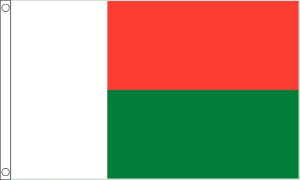Language/Southern-betsimisaraka-malagasy/Grammar/Nouns
Hi Southern Betsimisaraka Malagasy learners! 😊
In this lesson, we will focus on the basics of Southern Betsimisaraka Malagasy nouns. By the end of this lesson, you will understand how to use and form different types of nouns.
With the completion of this lesson, consider investigating these related pages: How to Use "Be", Adjectives and ..., Questions & Future Tense.
Introduction[edit | edit source]
Nouns are the building blocks of any language, and Southern Betsimisaraka Malagasy is no exception. In fact, mastering nouns is key to effective communication and a critical aspect of Betsimisaraka Malagasy grammar. Here, we will cover Southern Betsimisaraka Malagasy noun types and their usage.
We recommend first reviewing the basics of Southern Betsimisaraka Malagasy [1] before continuing with this lesson. Once you've got the hang of the fundamental grammatical concepts, learning the intricacies of Southern Betsimisaraka Malagasy nouns will be much easier.
In addition, don't forget to practice regularly with native speakers! Find native speakers and ask them any questions!
Types of Nouns[edit | edit source]
There are various types of Southern Betsimisaraka Malagasy nouns, which can be used to describe people, places, things, concepts, and more. Here are a few common types:
Proper Nouns[edit | edit source]
Proper nouns refer to specific people, places, or things and are usually capitalized. For example:
| Southern Betsimisaraka Malagasy | Pronunciation | English |
|---|---|---|
| Hasina | [haˈsina] | Hasina |
| Madagascar | [madagasˈkʲar] | Madagascar |
| Imerina | [imeˈrina] | Imerina |
Proper nouns are not usually preceded by an article.
Common Nouns[edit | edit source]
Common nouns refer to general things, people, or concepts and are not capitalized. Unlike proper nouns, they must be preceded by an article:
| Southern Betsimisaraka Malagasy | Pronunciation | English |
|---|---|---|
| vehivavy | [ve'hi.va.vy] | woman |
| fiara | [fiˈarə̥] | car |
| fototra | [fu'tut.ra] | place |
Abstract Nouns[edit | edit source]
Abstract nouns describe intangible concepts that lack physical presence. They are usually formed by adding a word to a base noun or verb. Examples include:
| Southern Betsimisaraka Malagasy | Pronunciation | English |
|---|---|---|
| fahamarinana | [fa'ha.ma.ɾi'na:nḁ] | truth |
| fahataperanan'ny fomba | [fahata.peɾa'na:̥n̥ ny 'fu.ᵐba] | tradition |
Collective Nouns[edit | edit source]
Collective nouns refer to groups of people or things. Examples include:
| Southern Betsimisaraka Malagasy | Pronunciation | English |
|---|---|---|
| vondron'tsivy | [vu̥'druŋ] | team |
| sampan-draharaha | [sampandəˈraha] | business company |
Collective nouns are not usually pluralized, as they already refer to multiple things or people.
Gender and Number[edit | edit source]
Unlike Romance languages such as Spanish or French, Southern Betsimisaraka Malagasy does not use grammatical gender to connect nouns with adjectives or verbs. Instead, most Southern Betsimisaraka Malagasy nouns do not have gender distinctions, making it easier for learners to avoid gender-fueled errors.
However, like other languages, Southern Betsimisaraka Malagasy does use singular and plural forms. To form the plural, add the suffix "-sy" to the end of the noun. For example:
| Southern Betsimisaraka Malagasy | Pronunciation | English |
|---|---|---|
| sakana | [saˈkana] | fish (singular) |
| sakanasy | [sakaˈnasy] | fish (plural) |
Dialogue[edit | edit source]
Let's see some Southern Betsimisaraka Malagasy nouns in context:
- Person 1: Maninona ny anaranao? ([What is your name?])
- Person 2: Rina. Andriamanitra maringana ny anarako. ([Rina. God be praised, my name.])
- Person 1: Inona no merina eto? ([What is this thing?])
- Person 2: Fahasimbanana. ([It's a telephone.])
- Person 1: Aiza ny fiara? ([Where is the car?])
- Person 2: Eto Amin'ny lalana. ([It's on the road.])
Conclusion[edit | edit source]
In this lesson, we covered the fundamentals of Southern Betsimisaraka Malagasy nouns. It's important to remember the various types of nouns and their usage when communicating in Southern Betsimisaraka Malagasy. Continue to practice with native speakers, read and listen to Southern Betsimisaraka Malagasy in context, and use Polyglot Club to improve your skills.
➡ If you have any questions, please ask them in the comments section below.
➡ Feel free to edit this wiki page if you think it can be improved. 😎

